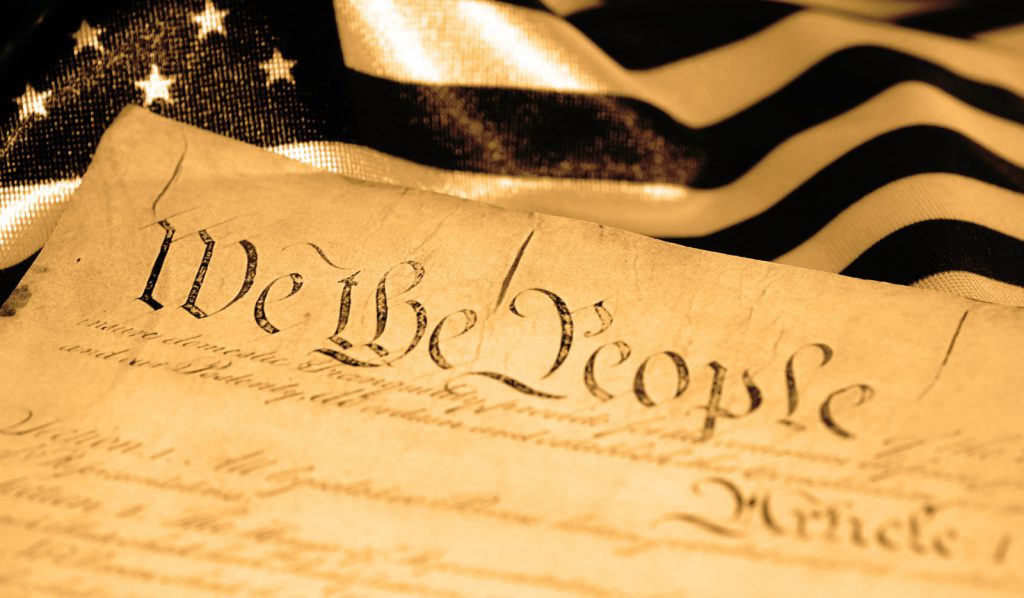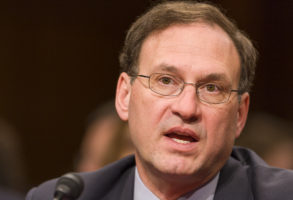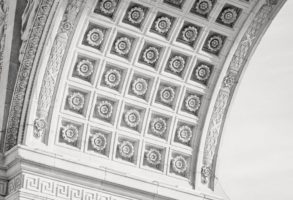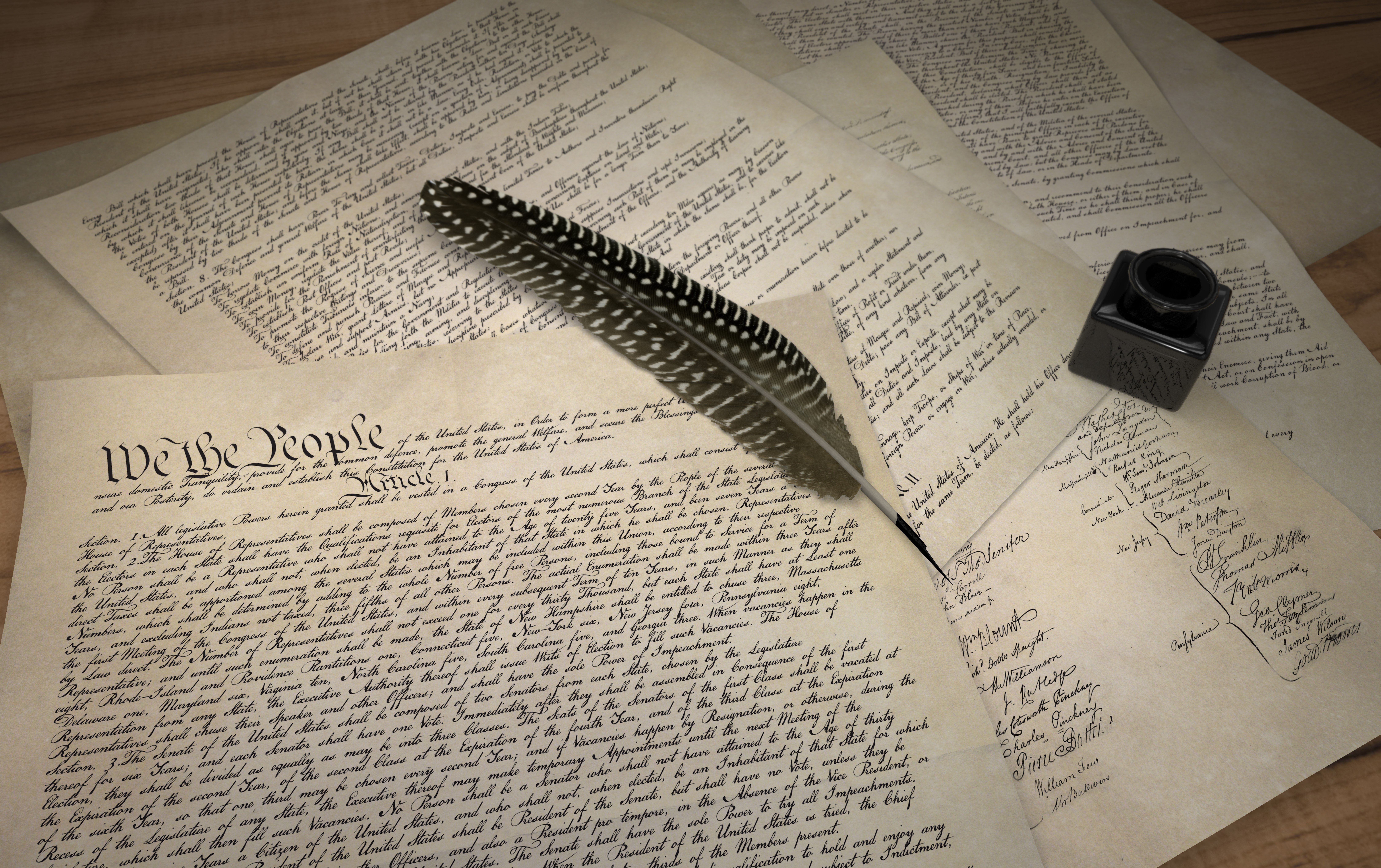
Published September 17, 2017
One of the very great blessings we enjoy as Americans is the written Constitution we have inherited, and are called on to perpetuate and strengthen. It is, as Lincoln memorably put it (echoing Proverbs 25:11), the picture of silver that houses our apple of gold—the self-evident truths at the core of our founding. And it is an extraordinary model of institution building, which we are in particular need of these days.
On this date 230 years ago—September 17, 1787—the Constitution was signed by its authors, and began its challenging journey toward ratification. It seems only fitting to spend Constitution Day reading the document and reading about its meaning and sources, its framers’ hopes and intentions, its history, and its (far from ideal, alas) current condition. There is far more worth reading than you could hope to fit in a day, of course, but a few favorites that you can find for free online might be particularly worthwhile if you’re looking.
The text of the Constitution, which is the place to start, is of course easy enough to find online (or why not let Hillsdale send you a copy you can keep in your pocket?). But I’ve found the annotated version offered by the National Constitution Center interesting and valuable beyond the simple text sometimes.
On sources of the Constitution, there is an astonishingly rich and not so widely known resource available from the University of Chicago Press and the Liberty Fund. They have digitized all five huge volumes of The Founders Constitution, an extraordinary anthology of source materials on every constitutional provision gathered by Chicago professors Philip Kurland and Ralph Lerner, and made them all not only available but cross-linked and referenced in a way that makes the whole just immensely useful and interesting. Lerner was my teacher—and what a teacher!—so I’m partial, but it’s really an exceptionally useful and under-appreciated free resource. Do have a look.
Among the sources frequently excerpted in The Founder’s Constitution is James Madison’s collection of his notes on the Constitutional convention. It’s an almost day by day recounting of the convention, and in many places is utterly fascinating. You can find a very usefully arranged form of it for free here, courtesy of the National Heritage Center for Constitutional Studies. The notes are one man’s observations, and they were also almost certainly doctored a bit by Madison in later years to improve his own image (the evidence, collected for instance by Mary Sarah Bilder, certainly suggests that Madison cleaned up his views on slavery years after the fact, and proffered exculpatory justifications not made at the time for his support at the convention of Hamilton’s very bad idea that presidents should serve lifetime terms). But it is by far the most extensive contemporaneous source we have on what went on at the convention, and it makes for fascinating reading.
And speaking of Madison and Hamilton, if you’re going to read about the Constitution you should of course also take up the Federalist Papers. They are readily available online in lots of places for free (this site hosted by Yale Law school is an easy one) and they really just make for endlessly rewarding reading. Different papers become pertinent at different moments in our national life. And the authors’ wrong turns can sometimes be as interesting as their most piercing insights into timeless political truths. (I had the privilege last summer to lead a small group of students in discussing some of those apparent mistakes, and I learned an enormous amount from the experience. I wrote a bit about one facet of it here.)
More contemporary reflections on constitutionalism and its condition are of course available in very great abundance and it would not be easy to make just a few suggestions of much value. National Review is often full of them, needless to say, as are the Claremont Review of Books, National Affairs, and other publications. But one place to go for reflections on a particularly important set of constitutional questions, and one perhaps especially relevant for our time, is the Winter 1987 issue of The Public Interest. It was a special issue commemorating the bicentennial of the Constitution, and it featured some extraordinary essays by Irving Kristol, Nathan Glazer, Daniel Patrick Moynihan, James Q. Wilson, Harvey Mansfield, Walter Berns, Tom Pangle, Michael Malbin, Glenn Loury, and Jeremy Rabkin. If you like that kind of thing, you’re really going to like this one. Many of the authors, probably not by design, seemed to gravitate toward the question of what kind of moral character or virtue the Constitution requires of citizens and leaders, or assumes they will possess. This is, I think, a particularly important question today and one we don’t think about enough.
Our constitutional system is in some trouble at this point. It has seen worse times, I would venture, but it has seen better ones too. And I think the immense distractions from core governing questions that are so characteristic of this moment keep us from seeing the nature of the problem. Everyone gravitates to the pandemonium surrounding President Trump, and it could be that in time he will end up posing some serious challenges or threats to the constitutional system (and that his most intense opponents and critics may too). But in constitutional terms, I think we confront a bigger problem now, rooted in Congress more than in the presidency. The problem takes the form of a kind of dereliction—a dearth of appropriate ambition that leads to an inclination to shift blame, shirk responsibility, and delegate power rather than use it within the bounds of the constitutional framework.
Conservatives at different times tend to complain about the overreach of the executive and the judiciary, and such overreach is surely dangerous. But in both cases it is abetted, and perhaps originally motivated, by an inexcusable underreach (if you will) on the part of the Congress, and a loss among its members of a clear sense of what their role and their institution’s role ought to be in our system.
It seems to me that if Donald Trump has so far shown a tendency to do damage to our constitutional infrastructure it is largely (though not exclusively) by bringing this proclivity—this inclination to treat the institution he occupies as a platform for celebrity performance rather than one instrument of national self-government—to the presidency. His predecessor did some of this too, of course, and Trump has taken it further. He seems more likely to endanger the system by his feebleness as an executive than by any excess of strength. “A feeble Executive implies a feeble execution of the government,” Hamilton wrote in Federalist 70. And “a feeble execution is but another phrase for a bad execution.”
But the problem is nonetheless still centered in the Congress. And a solution that might bring some reinvigoration of our constitutional system will need to start in Congress and to involve meaningful institutional reform there.
But maybe complaints should be for another day. Today is for studying our Constitution and for celebrating it. And the more you do of the former, the more you’ll want to do of the latter.
Yuval Levin is the Hertog Fellow at the Ethics and Public Policy Center.








